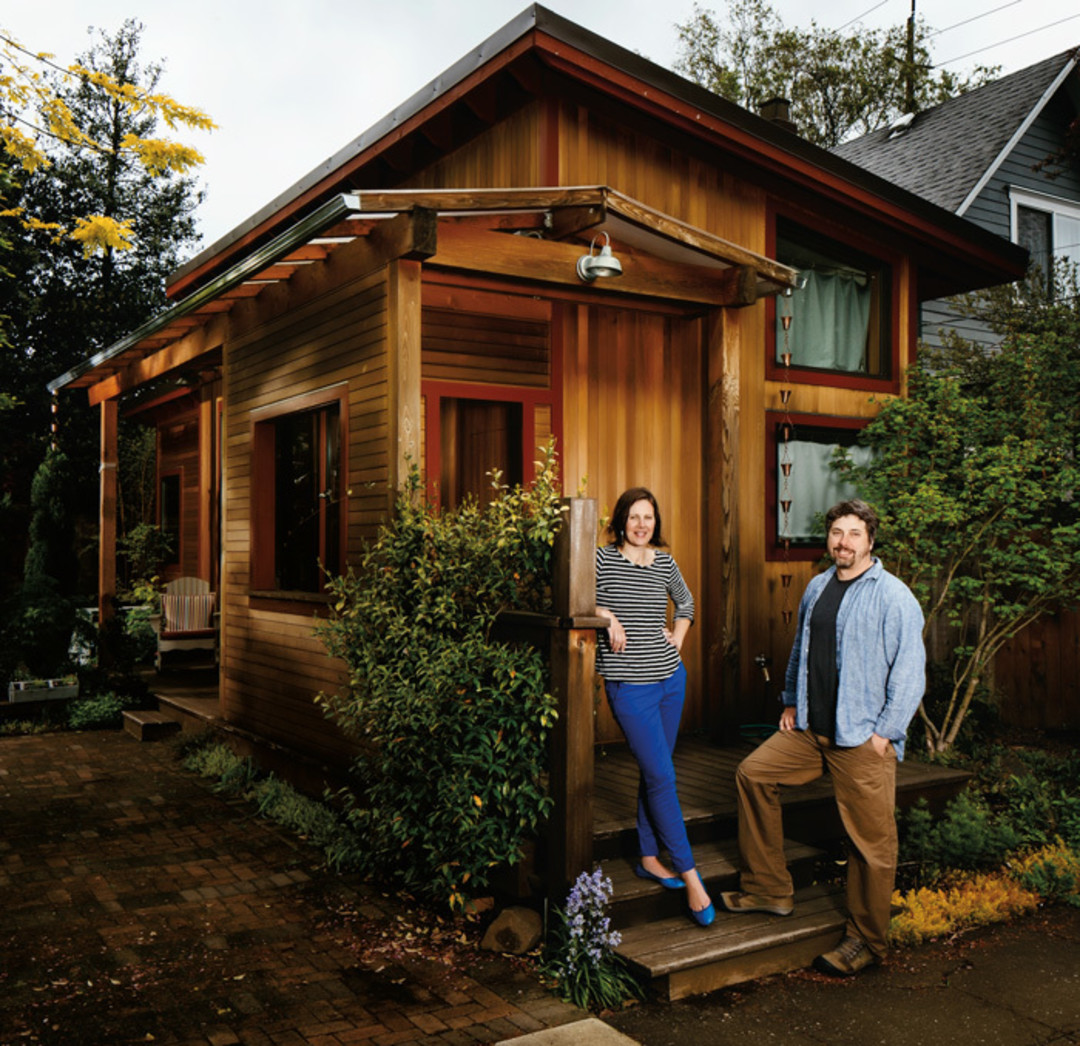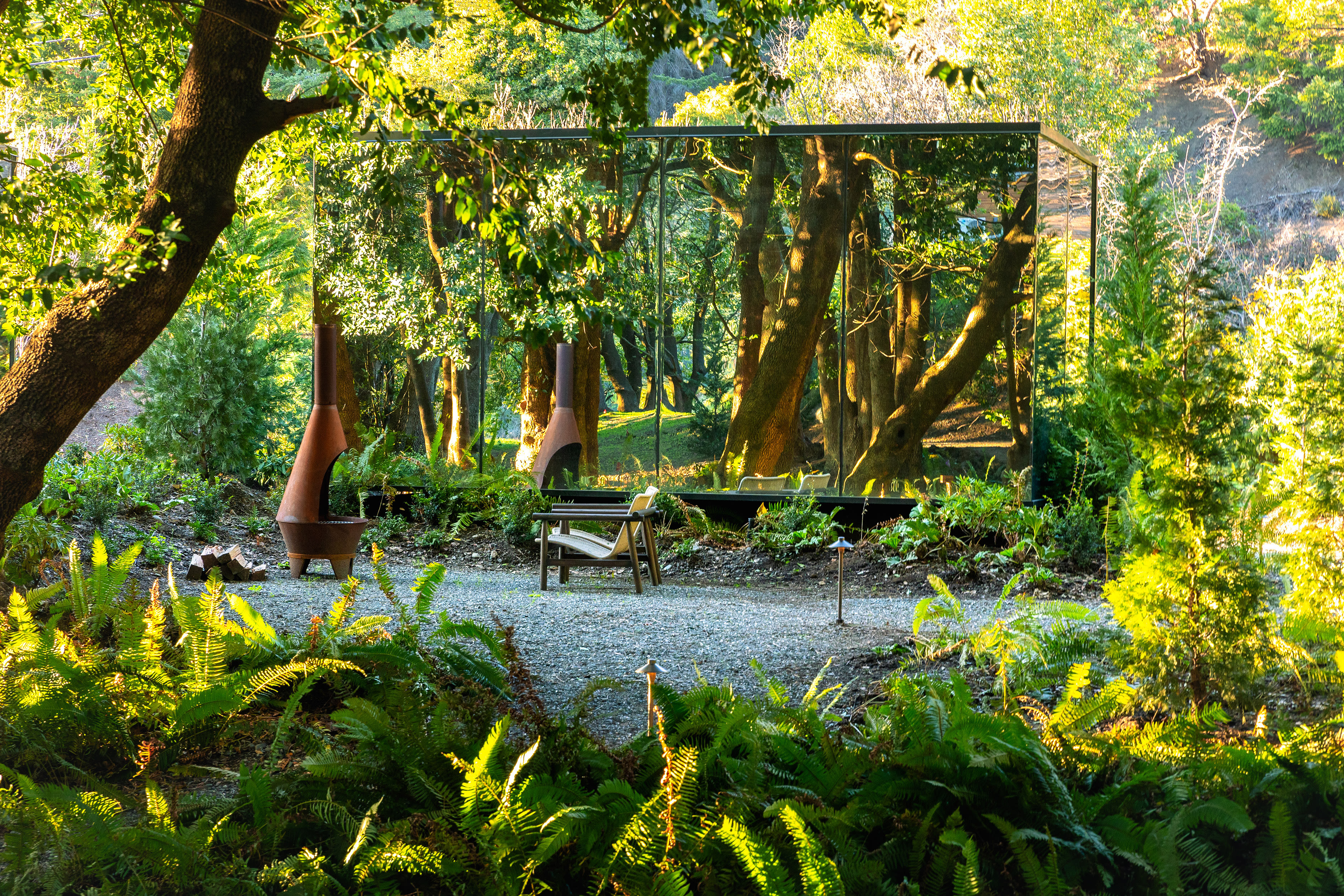Portland Shacks Up with Airbnb

Image: Dan Root
A shaggy front yard off of NE Skidmore Street makes the perfect place—strangely—to consider the future of Portland’s hotel business.
Nina Danielsen and George Zaninovich’s family home looks like any other casual-chic Portland domicile. Out back, however, stands the Pocket House, a 430-square-foot jewel box of woodsy-modernist charm. In 2011, the couple tore down a carport and commissioned the “accessory dwelling unit” as a destination for visiting family. Then they had another thought. “I’d always had this strange attraction to running a bed-and-breakfast,” Danielsen says. The Pocket House became, Zaninovich recalls, the 24th Portland property listed on a then-obscure website called Airbnb.
Today, guests occupy the Pocket House about 230 nights a year, at a base rate of $135 a night, and Airbnb features more than 1,000 Portland-area properties, from a Sellwood bedroom ($60) to Woodland’s Empress Estate ($3,600). “It’s beyond what we imagined,” Danielsen says. “It’s a business.”
That business is about to become much bigger here. This spring, city officials lauded the San Francisco–based company’s decision to locate its North American customer-service hub, and 160 jobs, in Old Town. Almost simultaneously, Airbnb founder Brian Chesky announced a deal to make Portland a “Shared City.”
Cool name aside, being a Shared City amounts to Airbnb’s promise to help local government collect the 11.5 percent lodging tax that traditional hotels pay. Some local Airbnbs—like the Pocket House—already pony up. Many do not. If one city can get those taxes paid in full, cities and states elsewhere might partner up.
Chesky’s company is an icon of the “sharing economy,” the idea that anything—bedrooms, cars, cameras—can be rented peer-to-peer. It’s an attractive concept, but “sharing” hasn’t won over everyone. Portland’s neighborhood associations are leery at best, and at press time, City Council was still sorting out the company’s land-use status. In San Francisco, debate centers on whether Airbnb is displacing traditional renters. A recent anti-Airbnb manifesto in the New Orleans magazine Antigravity ranted: “The Sharing Economy’s hippie-dippie language co-opts free culture.”
Portlanders can expect to hear all those arguments. But then there are the facts on the ground. “We’ve had neighbors’ parents stay,” Zaninovich says. “We’ve had people get engaged here.” Pocket House guests love exploring nearby North Portland. Their hosts love the impromptu barbecues and far-flung connections their mini-hostel fosters. Airbnb may represent a new kind of capitalism, or just a way for plain-old capitalism to exploit more stuff. Either way, it provides experiences—and revenues—more and more people will want to share.




